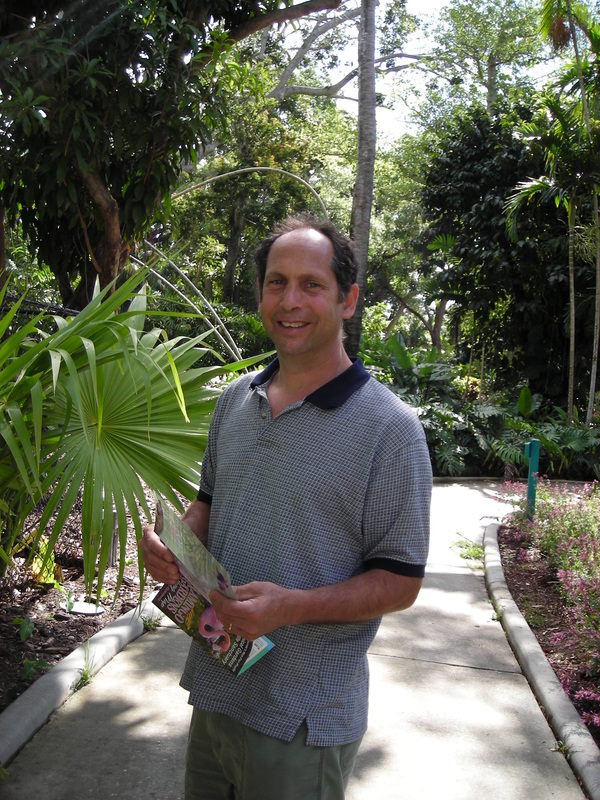CASE 1. JOSHU'S DOG
A monk asked Joshu, "Does a dog have Buddha Nature?"
Joshu replied, "Mu"
I am a teacher in a Rinzi lineage and you might think that I have practiced and passed dozens of koans as is typical of Rinzi teachers but you would be wrong. Many years ago (1980) I was doing a sesshin with Sazaki Roshi and passed three koans which you can read about in my essay A Life of Practice. I then worked on this koan, Mu, with Genki Roshi and never passed it to his satisfaction. And then for many years I was a solitary practitioner. In 1999 I started doing Sesshins with Harada Roshi and he chose to not work with me through koans. Of course we had conversations and he tested me in various ways but he never gave me a formal koan. So here I am writing a commentary on a koan and you might be asking why? Well just for the fun of it, and also to pull out a hat from my bag of tricks as a teacher of Zen.
This is the first case in a collection called the Mumon Kan which translates as the Gateless Gatee. Koans are usually sayings or stories from past teachers that are deemed to have instructive quality but koans can also be created by a contemporary teacher. In Rinzi Zen students work on koans directly with the teacher in the one on one encounter called sanzen. Somehow they are to be utilized in the activity of meditation. On the surface a koans can seem to be a very difficult and maybe completely absurde puzzle. Yet when seen from a certain perspective they make perfect sense. But don't think you can think yourself through a koan. Thought is the problem, experience is the answer
In this case Joshu's response Mu is not just nonsense syllable but infact means "no." The puzzle presents itself on several layers. On the surface Joshu is saying that a dog does not have Buddha Nature. And yet Buddhist doctrine says that all being have Buddha Nature including dogs. So is he saying that a dog has and does not have Buddha Nature. This would violate our normal dualistic way of thinking. But then we have to ask ourselves what is Buddha Nature? This is itself an extremely difficult question maybe on it's own demanding enlightenment. Though some people might say "no" and pulling out from doctrine say that Buddha Nature is our inherent potential to become a Buddha. I would say throw away all doctrine, this is a study that you must make on your own. Zen is a transmission outside of any doctrine. Be a scientist, perform the experiment yourself even though it might take 10 or 20 years to properly set it up. It only took the Buddha 6 years though he was extremely determined, yet he and all the subsequent masters of the laboratory of their own mind have also made it easier on us by pointing us in the right direction. What is the experiment? Take meditation to it's limit, learn to actually stop thinking. I don't mean, to shut down everything including consciousness, though that may happen. In Zen we sit up straight with our eyes open. Use each breath to cut off thoughts, deepen awareness and strengthen concentration. When you get there, when you are sitting in the Moonwater Dojo then you are ready to answer this koan.
When you are first given a koan, a good koan, the very nature of the koan is to make you think. But that is it's catch, it seems intellectually interesting and that is ok because it is important to think about a koan. It is important to think about the koan because it is important to set it in your subliminal consciousness but then it is also important to forget the koan and just practice Zazen. When the time is right, when zazen is sufficiently deep, the koan will rise into consciousness and it will be answered.
Mu is a little different from most koans in that it makes a great mantra. With each breath say muuuuuuu silently to your self. Say it while you sit zazen but also as you walk down the street, shop for groceries, cook dinner, and drive a car. Is this any different from counting your breaths? No! It doesn't make any difference whether you count your breaths or say mu just don't let the practice stop. It is like climbing Mount Everest, any weakness in resolve and you just won't make it.
You may have heard that the answer to Mu is mu. So you go into sanzen and give a great MU shout and it is rejected. Then a soft mu is rejected. You might think that your mu will be accepted when it is a perfect expression of your self but you would be wrong. The mu will only be accepted when there is no thought of mu and no thought of self. Step through the Gateless Gate, enter samadhi, and you will have crossed the river of life and stepped on the other shore.

 RSS Feed
RSS Feed